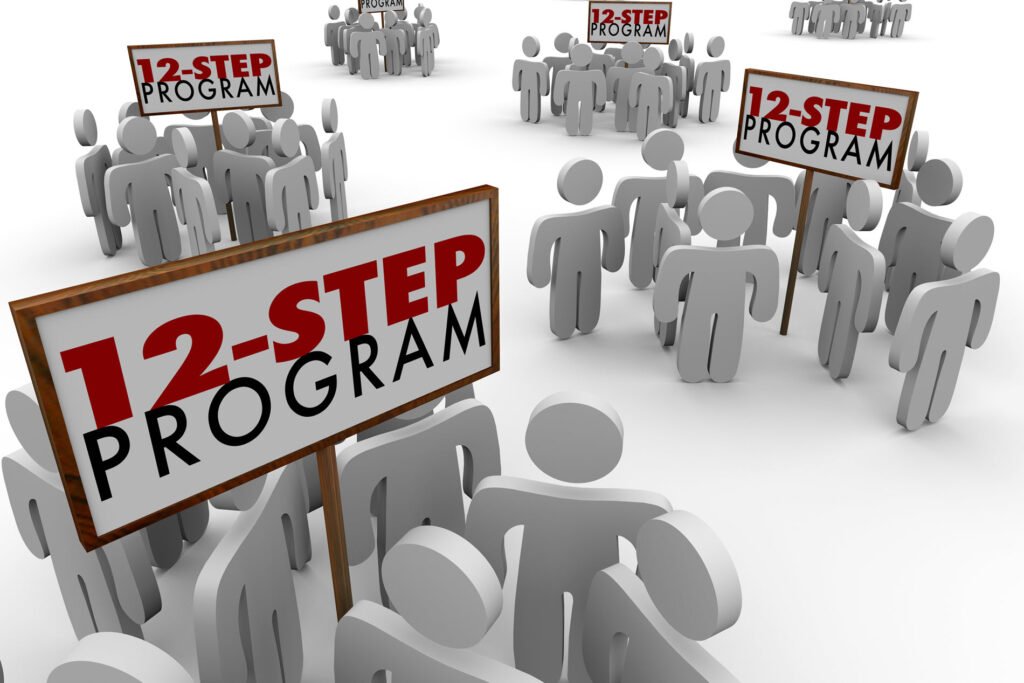To work through any 12-step program, you will need a sponsor. It’s common for beginners to start with a temporary sponsor. That person or another individual will later become your permanent sponsor. They will become an essential part in walking you through the recoveryThe process by which addicts attempt to break the hold a certain substance or behavior has on their lives. This can refer to participation in a wide variety of methods. What they all have in common, is a sense that life is improving and the addict is regaining control. More process.
The AA literature defines the sponsor as: “An alcoholicAn individual with an unhealthy dependence on alcohol. From the perspective of AA, it is an individual who has lost control over their life due to an inability to stop drinking. More who has made some progress in the recovery programThis refers to any official course of treatment for addiction. This could be anything from in-patient facilities, to 12-step programs to harm-reduction programs. More shares that experience on a continuous, individual basis with another alcoholic who is attempting to attain or maintain sobrietyIn 12-step programs, an individual is sober when they are no longer partaking in the behavior or substance to which they are addicted and living a better life following the program. Both are necessary to achieve sobriety. More through A.A.” The principle is very similar in the other 12-step programs, as they all adopted this role from the mother program.
While the sponsor does not have to be to an individual who has completed all 12-steps, they should be significantly ahead of the sponseeAn individual in a 12-step program requires a sponsor to help them work the steps and hold them accountable for their recovery. The sponsor should be readily available when help is needed. A member with a sponsor is considered to be the sponsee. More so that they possess the wisdom of experience to help traverse the earlier stages of recovery.
1. Helping a Sponsee Through Working the 12 Steps
Each step is different and requires its own pace and rhythm. The sponsor will help give an idea of what each step entails and how to handle it. The stepsThe term "12 steps" refers to the core principles of the approach to addiction exemplified by Alcoholics Anonymous and other similar groups. The 12 steps are a set of guidelines designed to help individuals overcome addiction and rebuild their lives. They were created by the founders of Alcoholics A... More can seem very vague if you just read the literature. Therefore, a good sponsor will also give concrete steps on how to give each step a satisfying and actionable amount of closure, thus allowing you to move on to the next step. They should also give you practical instruction on how to integrate the wisdom behind the 12-steps into your daily life moving forward. This allows recovery to be a life-long process, rather than a temporary event.
The steps were not intended to be worked alone. The way they are described in AA and other 12-step literature leaves no doubt about that. In many steps, the guidance of the sponsor is required.
For example, step nine requires that you make amends to people affected by your addiction. Plans to do so should be specifically discussed with your sponsor so that you do not approach people in a harmful way or for the wrong reasons. It is the sponsor’s job to make sure the way you work the steps does not lead you astray.
2. Be a Listening Ear & Guide
Emotional support can mean many things in different circumstances. Often, they will provide kind words when we are too hard on ourselves. If we are close to a breaking point or relapseRelapse in the context of 12-step programs refers to the act of reverting to harmful behaviors associated with addiction after a period of recovery. This return to substance use or compulsive behavior disrupts the recovery process and often leads to a resurgence of destructive patterns that the indi... More, their job is to remind us of why recovery is worth the effort. This means that a good sponsor should be as available as possible, particularly in moments of crisis.
Sometimes the situation does not call for soft words of encouragement. A good sponsor will not be afraid to call us out when we are going down the wrong path. Maybe we are procrastinating on working on the steps. Or we have stopped attending meetings regularly. Perhaps we are not living our lives following the values of the FellowshipThis refers to the members of AA and the bonds of support between them. It is this fellowship that allows addicts to share their stories and accept each other in a world that is not always understanding. More. When we are distracted or misguided, they should not mince words and tell us so. However, we should never feel attacked by our sponsor. Unless we have very good reason to believe otherwise, we should not doubt that any criticism or confrontation comes from a place of compassion and is absent of malice. They must point out our destructive behavior before it seriously damages the process of recovery. They do so because they care. For our sponsor to do their job, we must believe they have our best interests at heart.
An open and honest relationship with our sponsor helps us to attain a state of genuine and grounded humility. Addiction lives in extremes when we think too highly or poorly of ourselves. A good sponsor will keep you focused on reality rather than fantasy. By doing so, our sponsors aid us in the all-important process of self-examination.
This involves a close involvement in the life of the sponsee. However, the role of the sponsor is not to run anyone’s life. Rather it is to provide wisdom and emotional support when needed. Ultimately, as every good sponsor will say “it is your recovery, not mine.” It is not the role of the sponsor to keep us in recovery. We must make that choice. Every day.
No two sponsor-sponsee relationships are alike. Some addicts need a more on hands micro-managing style. Others respond better to a looser relationship, where the sponsor allows the sponsee to work through the process on their own, turning to the sponsor when necessary. Therefore, when entering this relationship, the two should carefully coordinate expectations.
When you ask someone to be your sponsor, they are accepting the responsibility to guide you in a tumultuous and vulnerable time in our lives. Therefore, the sponsor mustn’t use this power to their interest. Any sexual, romantic, financial, or another sort of unseemly element should not be introduced into the sponsorship process.
A sponsor will be an important and influential figure in the life of a recovering addictThis refers to any individual currently making strides towards overcoming their addiction to alcohol or any other substance or harmful behavior. In many 12-step programs, an individual is considered an addict for the rest of their lives. Some approaches believe this moniker can be harmful to long-te... More. Therefore, when choosing one we should be making sure it is someone we have a common language with and can trust. After all, addiction is a diseaseSome refer to addiction as a disease, comparing it to physical ailments. There are similarities, as both have a detrimental influence on body and soul and are treatable through medical means. More bred in isolation. Our sponsor is there to accept us as who we are. By listening to the secrets we kept for so many years, they show us the benefits of truly opening up to another individual. This is part of a process that will ultimately allow us to hold our heads high with no shameFeelings of shame and inadequacy often contribute both to the onset of addiction and its continuation. Addicts also often commit immoral acts, leading to further shame. This leads to a destructive shame-addiction cycle. Breaking the cycle is one of the keys to recovery. More.
We also should choose a sponsor able to provide a living example of the life of recovery we wish to lead. A good sponsor will have already established or made considerable strides towards, living the sort of healthy and productive lives of sobriety we aspire to.







